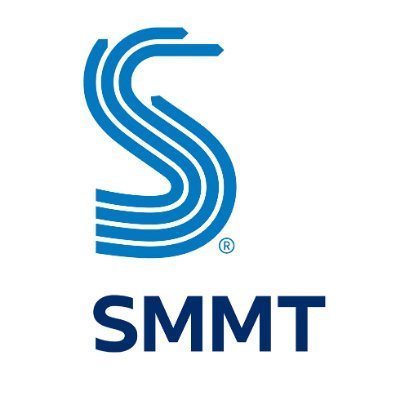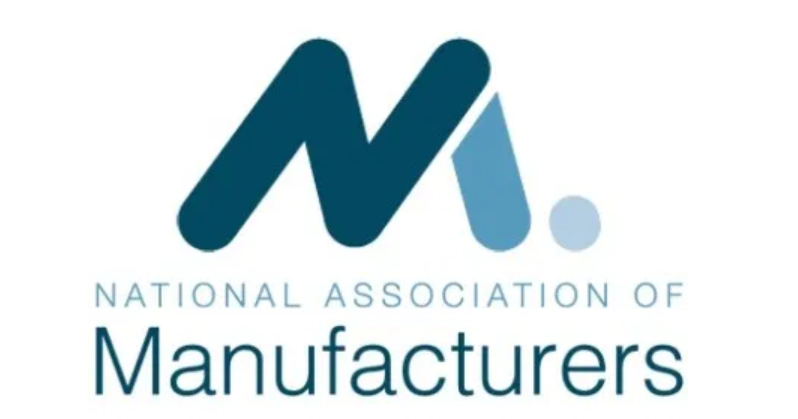Society of Motor Manufacturers and Traders
Category: Trade Association
The Society of Motor Manufacturers and Traders (SMMT) is the principal trade association for the UK’s automotive sector, existing to promote the interests of the industry “at home and abroad, to government, stakeholders and the media”.
The SMMT says it accepts that air pollution is a serious health risk but has been critical of some schemes to improve local air quality. It argues that the newest, cleanest diesel vehicle models should not be “discriminated against” and that “anti-diesel rhetoric” is counter-productive.
Its members include more than 800 UK automotive companies, including Volkswagen Group, Nissan, Jaguar Land Rover and Toyota, as well as other trade associations such as the Road Haulage Association and the Freight Transport Association, according to its website.
The organisation provides a range of services to its members, such as certification and training, as well as the Motor Vehicle Registration Information System, a database of new vehicle registrations in the UK that it maintains. It also runs a number of conferences and seminars through the year.
Its Chief Executive Mike Hawes has described the SMMT as “one of the most influential trade associations in the UK, as well as one of the oldest”.
Based in Westminster, “in the local [sic] of Parliament and major government departments”, the SMMT describes itself as being “heavily involved in political lobbying on behalf of the industry to ensure this vital sector of the economy is effectively represented to government”.
It has a large Public Policy and Vehicle Legislation department, which lobbies policymakers on a range of issues. According to its website, the department works to forge “close links with Ministers and civil servants, especially in HM Treasury, the Department for Transport (DfT), Department for Business, Energy & Industrial Strategy (BEIS)” and “meets with European decision makers and other key stakeholders in the public policy and industry arenas”.
The SMMT is also an “associated organisation” of the main EU-focused automotive trade association, the European Automobile Manufacturers Association.
All-Party Parliamentary Motor Group
As part of its lobbying activities, the SMMT runs the All-Party Parliamentary Motor Group in parliament.
The All-Party Parliamentary Group (APPG) exists to “debate current and future issues of strategic importance to the UK’s automotive industry, motorsport industry and vehicle users, focusing on the role of the motor vehicle, including the environmental impact”. It also aims to “promote dialogue between politicians, these industries, users and other stakeholders.”
The group organised a briefing in parliament on vehicle emissions in 2016, in the wake of the “Dieselgate” scandal, in which it highlighted progress made by the industry, stating that the “latest diesel cars are the cleanest in history”, and claiming NOx emissions had been reduced “by 84% since 2000”.
It is currently chaired by the Labour MP for Warwick and Leamington Matt Western. Others with named positions include fellow Labour politicians Jack Dromey, Justin Madders, Sharon Hodgson and Lord Hain; Conservative politicians Greg Clark, Andrew Griffith, Julian Knight and Baroness McIntosh; and Liberal Democrat peer Lord Fox.
Funding
Around a quarter of the SMMT’s funding comes from membership subscriptions, the levels of which are based on members’ turnover, according to its latest annual report.
In 2018, the organisation had a budget of £21,165,000, and holds net assets of £33,790,000.
Air Pollution Lobbying
On its website, the SMMT states that the car industry has an “important role in improving air quality and protecting the health and wellbeing of the population”.
In its 2019 “Automotive Sustainability Report”, it notes the progress made in developing low emission technology, claiming that “NO2 and particulate matter (PM) from road transport” have both reduced by 76% since 1990.
It also said that since road transport was “the single highest contributor to UK NO2 overall emissions”, the industry “recognises the need for continued improvement”.
A 2014 report by the SMMT’s All-Party Parliamentary Motor Group noted that air pollution “poses a serious risk to health” and stressed: “action to address immediate air quality concerns should be a top priority for policy makers, particularly where the UK is in breach of EU air quality limits”.
It also said the uptake of Ultra Low Emission Vehicles (ULEV) should be promoted and “policies to reduce emissions from other vehicle types such as buses, taxis and trucks” should be put in place.
In its submission to a 2017 inquiry into the government’s framework on Clean Air Zones (CAZ) by parliament’s Environment, Food and Rural Affairs select committee, the SMMT said it had “supported government’s approach to a Clean Air Zone Framework which puts forward consistently applied requirements”.
It recommended that the government “play a leading role in setting a framework that promotes a consistent national approach but allows local authorities to implement solutions suitable for local needs”.
However, it said there should be “sufficient timing for industry, consumers, vehicle users and businesses to adjust to implementation requirements of Clean Air Zones”.
It also welcomed the “focus on non-charging elements within government’s plan” and said alternative measures should be explored, including “investment in roads and improvements to road design”.
Since then, the SMMT has made a number of criticisms of CAZs, holding them partly responsible for a decline in UK car sales. It has argued that “confusing messages on clean air zones have taken their toll on buyer confidence”, compounding political and economic uncertainty. Chief Executive Mike Hawes has said this has not been helped by the “patchwork decision-making at local government level”.
In a statement to DeSmog, the SMMT’s Chief Executive Mike Hawes said it was committed to pursuing “a zero emission future” for its members but argued that some of the government’s current policies were not the right way to achieve this goal.
“Getting to zero is about market transformation, and a sustainable transition that supports consumers and businesses on the journey will require the full range of powertrains. Proposed blanket bans or penalties, which don’t distinguish between the latest vehicles and decades-old technologies, will cause confusion and undermine fleet renewal, which has already stalled during the coronavirus crisis.
“Instead, what’s needed is a clear and consistent national approach to clean air policies, which gives consumers and commercial fleet operators confidence to upgrade to the latest, cleanest vehicles that best suit their needs – alongside improvements to traffic flow and investment in the charging network”, he said.
Diesel Vehicles
In February 2020, the SMMT criticised the government for its proposed 2035 phase-out date for new petrol, diesel and hybrid cars, saying it had “seemingly moved the goalposts for consumers and industry”. In a statement, it claimed the move would “destroy value today” without a credible plan.
Along with carmakers including BMW, Ford, Honda, Jaguar Land Rover and McLaren, it argued against a ban on new internal combustion engine vehicles being brought forward from 2040 to 2030, in submissions to the government seen by the Guardian.
Pointing to its own modelling, the SMMT claimed a 2030 ban would cause UK car sales to drop from 2.3 million in 2025 to only about 800,000 in that year. A 2035 ban would reduce UK car sales to about 1.2m in that year, it claimed, compared with more than 2 million if a 2040 deadline was allowed.
In 2017, when the proposed target was 2040, the SMMT warned that the sector could be undermined if it did not have enough time to adjust. It said: “Outright bans risk undermining the current market for new cars and our sector”.
The SMMT argued that diesel cars have an “important role to play in addressing climate change” in its 2019 Sustainability Report. The organisation has previously condemned what it calls an “anti-diesel agenda”, claiming that around half of the rise in average carbon dioxide emissions for new cars sold in the UK was attributable to the decline in diesel demand.
Research on cars’ “real-world” emissions published by the International Council on Clean Transportation in 2018 found that even the latest Euro 6 diesel vehicles had significantly higher NOx emissions than petrol equivalents and exceeded emissions limits.
The SMMT argued in a September 2019 report that commercial vehicle operators should “have access to a range of new and existing technologies including diesel, hydrogen and natural gas methane”.
In 2017, the SMMT criticised the “backlash against cleaner, low emission diesels” and said the government should “create the right policies and incentives to encourage all low emission vehicles irrespective of fuel type”.
In its submission to a parliamentary select committee inquiry into the government’s Clean Air Zone Framework, it said CAZs should be “technology neutral”, defending the role that the latest diesel vehicle models could play in providing “significant emission reductions”. It argued that the government should “avoid an approach that discriminates against” the latest Euro 6 emissions standards.
Tests commissioned in 2018 by the consumer group Which? found that many new diesel models exceed the legal limits for NOx under these standards. The SMMT’s Chief Executive rejected the “non-official” findings and said only the official EU tests could “accurately compare models on a like-for-like basis”.
It has also said that “anti-diesel rhetoric” is counter-productive, arguing that it leads to diesel vehicle owners keeping older, more polluting cars on the road for longer.
Hybrid Vehicles
Responding to the proposed 2035 ban on new petrol, diesel and hybrid cars in February 2020, the SMMT argued that hybrid cars were “essential to deliver air quality and climate change goals now”.
In 2018, it criticised the government for its plans to abolish grants for plug-in hybrids, which contain both a petrol or diesel engine and an electric motor.
Hybrids have been criticised by campaigners because their emissions savings can be quickly negated by driving in petrol or diesel mode, while “extended-range” electric vehicles can arguably offer the same benefits in terms of mileage.
Electric Vehicles
The SMMT has publicly voiced support for electric vehicles, calling on the government to provide a “world-class package of incentives and infrastructure so the UK can be fit for an electrified future”.
Ahead of the 2020 Budget, it asked the Chancellor to remove VAT for electric vehicles to boost sales and previously expressed concern about the future of government grants for EVs when this was in doubt.
In a September 2019 report setting out its priorities, it urged the government to “sustain and enhance” its industrial strategy to further the “transition to ULEVs [Ultra Low Emission Vehicles] and the development of battery technology”.
However, it has also cast doubt on the level of demand for EVs, which it says are responsible for “just a fraction of sales”.
Key Arguments in Order of Prominence
- CAZs are leading to a “patchwork” of different measures across the country, causing confusion
- The CAZ policy has contributed to a decline in UK car sales by giving out confusing messages and damaging consumer confidence
- Anti-diesel rhetoric is counter-productive because it leads to diesel vehicle owners keeping older, more polluting cars on the road for longer
- Other measures should be explored before charging zones are introduced, such as better road design
- The latest, cleanest diesel models can play a key role in reducing air pollution
- Anti-diesel rhetoric has caused average CO2 emissions of new cars to rise because of a consumer switch to petrol
- Individuals and businesses need more time to adjust to CAZ schemes
Areas Active
Bristol: the SMMT has strongly opposed a planned ban on diesel cars in the city centre, which it has called “draconian”. In October 2019, it argued the proposal failed to “distinguish between modern vehicles and decades-old technologies”. It also said it would cause confusion and be counter-productive by discouraging people from upgrading to the latest Euro 6 diesel models.
London: in its response to a consultation on strengthening the emissions standards of the city’s existing Low Emission Zone (LEZ) and expanding the city’s Ultra Low Emission Zone (ULEZ), the SMMT said it supported the requirement for heavy vehicles to meet the Euro 6 standard but said it wanted to see a “flexible approach to enforcement” for operators planning to upgrade their vehicles. It also said a cost-benefit analysis should be published and called for “additional measures” to support the uptake of ULEVs.
Key Actions
Associated Politicians
Labour
- Matt Western
- Jack Dromey
- Justin Madders
- Sharon Hodgson
- Lord Hain
- Fabian Hamilton
- Karin Smyth
- Ian Lucas
Conservative
- Greg Clark
- Andrew Griffith
- Julian Knight
- Baroness McIntosh
- Lord Astor
- Heather Wheeler
- Victoria Prentis
- Nigel Adams
- Maria Caulfield
- Sir Graham Brady
- Nigel Evans
- Mark Prisk
Scottish National Party
Liberal Democrat
Related Organisations
Social Media
- @SMMT on Twitter.






